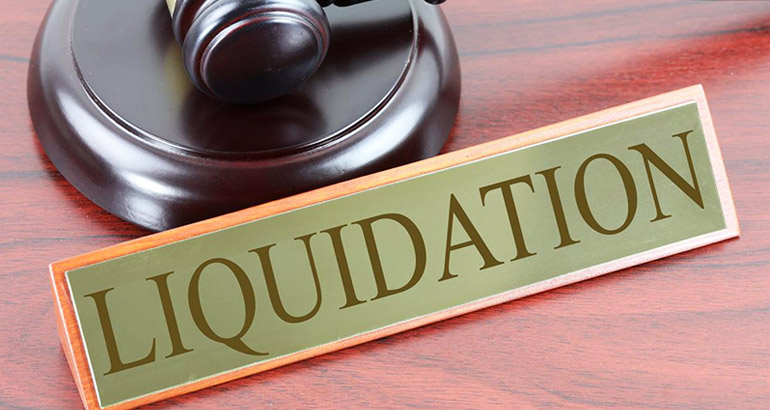What Does Company Liquidation Mean?
Wiki Article
See This Report about Company Liquidation
Table of ContentsExamine This Report on Company LiquidationThe 10-Minute Rule for Company LiquidationExcitement About Company LiquidationThe 45-Second Trick For Company LiquidationThe Single Strategy To Use For Company Liquidation
A liquidator is specifically designated to oversee the winding up of a firm's events in order for it to be shut down normally when the company is going bankrupt. The liquidator is a neutral third party who manages the sale of business assets in order to repay any type of arrearages.Their function includes, yet is not restricted to: Impartial Overseer: A liquidator is entrusted with acting as a neutral third celebration to supervise the entire business liquidation procedure. Develop Statement of Affairs: Liquidators should develop a detailed statement of affairs document. This paper is dispersed to financial institutions, outlining the current economic standing of business at the time of its liquidation.
After the liquidation of a firm, its presence is eliminated from Business House and it stops to be a legal entity. If supervisors browsed the process without problem, there would be no charges or individual liability for firm debts expected. Currently, with a tidy slate, directors can check out new business chances, though expert appointment is a good idea.
All About Company Liquidation
If more than 90% of all firm shareholders concur, liquidation can take location on short notice within 7 days, the minimal statutory notice for financial institutions. Normally, the larger the liquidation and the even more properties and capital the business has, the longer the process will certainly take.
We understand that no 2 firms coincide, which is why we will take the time to get to understand your business so we can suggest the very best program of activity for you. We just work in your benefits, so you can be totally confident in the solution we offer.
Some Known Details About Company Liquidation
In the UK, there is a set process to shutting down or restructuring a limited company, whether it is solvent or insolvent. This procedure is referred to as liquidation and can only be taken care of by a licensed bankruptcy Read Full Report expert (IP) according to the Insolvency Act 1986. There are four major kinds of company liquidation procedure: Financial institutions' Voluntary Liquidation (CVL); Mandatory liquidation; Administration; and Participants' Voluntary Liquidation (MVL).
In these circumstances, it is essential that the firm stops trading; if the business proceeds to trade, the supervisors could be held directly responsible and it could cause the insolvency practitioner reporting wrongful trading, recognized as misfeasance, which may lead to lawful action. The directors select an insolvency expert and when this has been concurred and confirmed, there is a visit conference with the shareholders.
Of course, if there are no shareholders, this action of the procedure is not necessary (Company Liquidation). The IP takes control of the business and starts the firm liquidation procedure. The directors are no much longer associated with what takes place, including the sale of the company's possessions. Nevertheless, if the supervisors desire any one of the properties, they can alert the IP.
Unknown Facts About Company Liquidation
The major difference is that the company's creditors put on the court for a winding up order which forces the bankrupt business into a liquidation procedure. Lenders take this action as visit this site right here a last hotel because they have not gotten settlement with other kinds of settlement. The court appoints a bankruptcy professional, also recognized as an official receiver, to carry out the required firm liquidation procedure.This kind of firm liquidation is not voluntary and directors' conduct is reported to the UK's Assistant of State once the liquidation procedure has been finished. Any director that falls short to cooperate with the IP or has been included in director transgression, or a fraudulent act, may result in severe repercussions.
It is utilized as a method to shield the company from any lawsuit by its financial institutions. The supervisors of the firm agree to make regular repayments to settle their financial debts over a time period. The appointed administrator deals with the volunteer management procedure, and obtains the settlements which they after that disperse to creditors according to the agreed amounts.
The Ultimate Guide To Company Liquidation
This provides the firm with time to establish a plan going onward to save the company and stay clear of liquidation. At this point, supervisors hand control of the business over to the appointed manager. If a company is solvent yet the directors and investors want to shut business, a Members Volunteer Liquidation is the right option.The firm liquidation process is handled by a liquidator appointed by the supervisors and shareholders of the business and they have to sign an affirmation that there are no creditors continuing to be. The liquidation process for an MVL is similar to that of a CVL because assets are know but the proceeds are distributed to the supervisors and the investors of the company after the liquidator's costs have been paid.
Report this wiki page